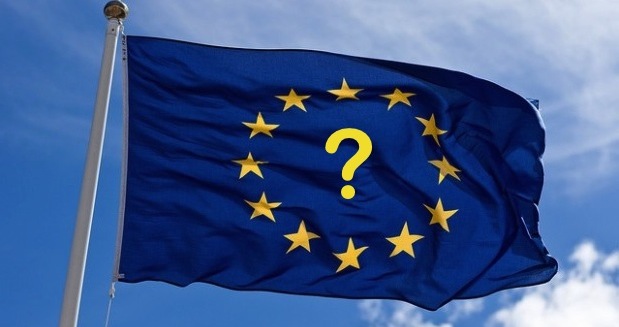
Whatever happened? (Part III)
From Jeff Fountain’s book Deeply Rooted. (Part I here, Part II here)
Meanwhile, where were the Christian ‘players’?
As we have seen, devout Christians have been engaged in the unfolding process at various stages, particularly Catholics. The Christian democracy movement has strongly influenced EU thinking and language, ‘subsidiarity’ and ‘solidarity’ being two terms permanently adopted with specifically Christian origins. The moral principle behind subsidiarity, for example, was once described as ‘that it was wrong to steal others’ responsibilities’.
Mainstream church leaders have enjoyed a long-standing official relationship with the commission president, with formal consultations taking place regularly. Catholic bishops and ecumenical church leadership councils have maintained permanent lobby offices in Brussels and have actively engaged in presenting submissions to shape EU policy and decision-making. Article 51 of the Lisbon Treaty addresses the status of churches and non-confessional organisations and guarantees an ‘open, transparent and regular dialogue with these churches and organisations’.
Christians have carried and continue to carry key roles in the EU, bringing their influence to bear where possible. Both the current president of the European Council, the Belgian Herman van Rompuy, and the last president of the European Parliament, Jerzy Buzek from Poland, are confessing, devout Christians.
Van Rompuy regularly retreats for prayer and meditation in a monastery. On the question of Turkey’s membership of the EU, he stated: ‘It’s a matter of fact that the universal values which are in force in Europe, and which are also the fundamental values of Christianity, will lose vigour with the entry of a large Islamic country such as Turkey.’
Buzek, in the midst of the deep financial crisis of late 2011 reminded his audience at the European Parliament Prayer Breakfast of the special responsibility Christians had to be salt and light. While some saw the Christian heritage today as simply a respectable but useless historical culture, in his opinion it was this heritage that had produced tolerance and openness for understanding.
“If we give it up, it will be replaced by a spiritual emptiness corroded by nationalism and particularism (self-interest),” he warned.
Over the years, numerous Christians from many countries have served as members of the European Parliament, as well in Commission departments. The story of my visit to the European Commission building in 1991 revealed a network of Christian workers meeting regularly for prayer.
Evangelicals have had a much lower profile in Brussels than ‘mainstream’ Christians, often attributed to being a smaller proportion of Europe’s population, perhaps 15 million in total. However that is about equal to Holland’s population, and yet the Dutch seem to be able to make a visible impression in Brussels.
Paul van Buitenen’s tale, who later served in the European Parliament as a one-man party, Europa Transparant, also illustrates what one person can do–even if at great personal cost. Shortly before I first met him in Brussels over ten years ago, his exposure of corruption and cronyism involving former French premier, Edith Cresson, had caused the resignation of the whole of Jacques Santer’s European Commission. At that stage he was just one of thousands of office workers in the European Commission. But before his allegations were proven to be true, van Buitenen had been suspended, his salary halved and he faced disciplinary action.
Public indignation over his treatment eventually contributed to the fall of the Commission in March 1999. Later he was named ‘European of the Year’by Reader’s Digest magazine and the Australian Broadcasting Commission.
Three or four years before his exposure, van Buitenen had become a believer. His personal commitment to a God of truth and justice remained the driving force behind his investigations over the years, despite the constant cold-shouldering and stone-walling he continued to experience in the European Commission.
Van Buitenen battled on. During his parliamentary term from 2004 to 2009, he brought to light many instances of corruption in EU-institutions. None of these revelations however led to any further investigation by the EU antifraud department OLAF. Instead, complained van Buitenen, the European Commission, the Parliament and OLAF simply looked the other way. After proposals for increased supervision of OLAF by an adequate independent body went unheeded, van Buitenen decided not to stand again for the European Parliament.
Yet the European Union requires democratic structures, checks and balances, at the European level. As long as prophetic voices like van Buitenen’s remain crying in the wilderness, the European project is headed in the wrong direction.
(Part IV will be published next week)
Jeff Fountain
Director Schuman Centre

This Post Has 0 Comments